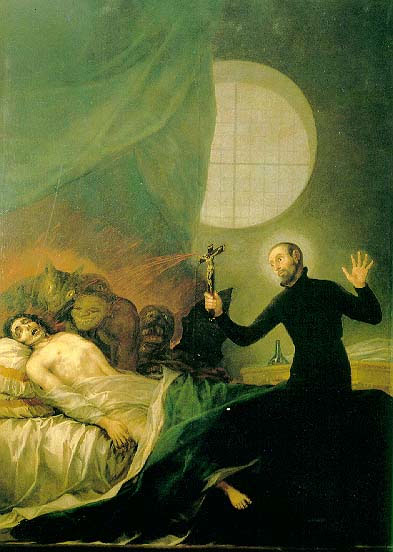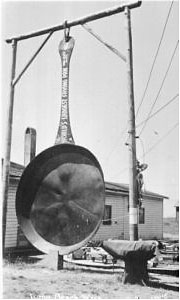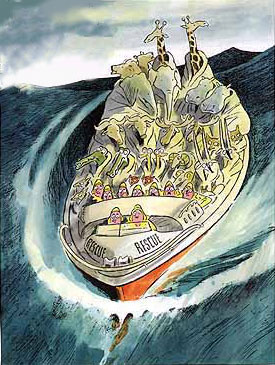Oct
26
2009

Daniel was taken to Babylon before the destruction of Jerusalem. As the ruler over the king’s advisors, it is highly likely he was involved in the razing of Jerusalem.
The Lord sent Joseph into Egypt as a forerunner, established his house and integrated the old house of Jacob into it. Pharaoh was converted under the ministry of Joseph, humbled himself before Jacob and requested a blessing.
The Lord did the same thing with Daniel. A new house was being established in Babylon before the final demolition of the old Temple. Daniel ascended as “firstfruits”. He stood on the mountain of God as Abraham, as Moses. At the right hand of the power he would bring the curses of the Law raining down upon the Covenant breakers. As Abraham bargained with God, perhaps the mercy shown to Judah’s poor was the work of Daniel.
Continue reading
Comments Off | tags: Babylon, Bible Matrix, Cyrus, Daniel, Esther, Ezekiel, Haggai, Haman, Joshua, Mordecai, Nebuchadnezzar, Zerubbabel | posted in Biblical Theology, The Restoration Era
Oct
25
2009
“Wisdom and virtue are not found in mastering desire, but in the maturing of desire.”
From Peter Leithart yesterday:
 Carey Ellen Walsh (Exquisite Desire
Carey Ellen Walsh (Exquisite Desire ) points to the difference between classical responses to desire and the account of desire in the Song of Songs. Using Odysseus and the Sirens as an illustration, she notes how this scene reveals the Greek instinct that desire “harbors danger by rendering its victim under its spell.” To counter desire, one needed to exercise rational management and control: “The Greek philosophical tradition placed desire under the care of rationality. Hence, Odysseus did just what desire calls for; he bested emotion with a reasoned plan. Under this classical influence, Foucault argues, desire became for the West largely something to manage, dominate, and even defeat.” Sexual desire needed to be controlled, and that control is what makes someone virtuous.
) points to the difference between classical responses to desire and the account of desire in the Song of Songs. Using Odysseus and the Sirens as an illustration, she notes how this scene reveals the Greek instinct that desire “harbors danger by rendering its victim under its spell.” To counter desire, one needed to exercise rational management and control: “The Greek philosophical tradition placed desire under the care of rationality. Hence, Odysseus did just what desire calls for; he bested emotion with a reasoned plan. Under this classical influence, Foucault argues, desire became for the West largely something to manage, dominate, and even defeat.” Sexual desire needed to be controlled, and that control is what makes someone virtuous.
Continue reading
Comments Off | tags: Peter Leithart, Song of Songs | posted in Christian Life, Quotes
Oct
24
2009
“Certain Protestants say, it is a true sign of a very gracious state when a man feels and deplores his inbred corruptions. How near do these come to the Papists, whose doctrine they profess to detest and abhor! The truth is, it is no sign of grace whatever; it only argues, as they use it, that the man has got light to show him his corruptions; but he has not yet got grace to destroy them. He is convinced that he should have the mind of Christ, but he feels that he has the mind of Satan; he deplores it, and, if his bad doctrine do not prevent him, he will not rest till he feels the blood of Christ cleansing him from all sin.
True humility arises from a sense of the fullness of God in the soul; abasement from a sense of corruption is a widely different thing; but this has been put in the place of humility, and even called grace.”
—Adam Clarke on 1 Cor. 13.
Comments Off | tags: Adam Clarke, Holiness | posted in Christian Life, Quotes
Oct
24
2009

“…all drank the same spiritual drink. For they drank of that spiritual Rock that followed them, and that Rock was Christ.” 1 Cor 10:4
There is a well-known Australian children’s novel called The Nargun and the Stars based on an aboriginal legend. The Nargun is a living creature but it looks like a big rock. It doesn’t move much, but it when it does it is ferocious.
What is Paul going on about here? Discounting the various Jewish fables and Christian legends surrounding both the original wilderness texts and Paul’s words here, what is his meaning? Could the structure of the passage give us a clue?
Continue reading
2 comments | tags: Corinthians, Herod, Literary Structure, Numbers 5, Paul | posted in Biblical Theology, The Last Days
Oct
23
2009
Comments Off | posted in Biblical Theology
Oct
22
2009
or Becoming the Finger of God on the Eject Button
“Immediately, the Spirit drove Him into the wilderness.” —Mark 1:12

NOTE: THIS POST HAS BEEN REMIXED AND INCLUDED IN GOD’S KITCHEN.
You must be logged in to see the rest of this post.
Join now for a year for $15!
Oswald Chambers says:
The first thing to do in examining the power that dominates me is to take hold of the unwelcome fact that I am responsible for being thus dominated. If I am a slave to myself, I am to blame because at a point away back I yielded to myself. Likewise, if I obey God I do so because I have yielded myself to Him.
Continue reading
Comments Off | tags: AD70, Demons, Holiness, James Jordan, Obama, Oswald Chambers, Temptation | posted in Biblical Theology, Christian Life, Quotes, The Last Days
Oct
21
2009
2 comments | tags: Humour | posted in The Last Days
Oct
20
2009
or Submissible Evidence According to Paul

“…it is instructive that when the issue was so decisively drawn with his legalist opponents, Paul, at the climax of his argument, appealed to an allegory to refute the gainsayers of grace…”
Warren Gage writes:
Continue reading
Comments Off | tags: Galatians, Hermeneutics, Paul, Typology, Warren Gage | posted in Biblical Theology, Quotes
Oct
20
2009

or Tearing the Old Adam in Two
Jesus comes to the Pharisees. Who are the Pharisees? They are us. Pharisees are the evangelicals. They are the faithful in Israel.
The Sadducees were the liberals, the zealots were the political activists and the Essenes were the dropouts, and Jesus doesn’t fool with them at all.
Continue reading
4 comments | tags: AD70, James Jordan, Pharisees, Revelation | posted in Biblical Theology, Quotes, The Last Days
Oct
19
2009
More Thoughts on Prophetic Cauldrons
“Out of the frying pan into the fire.”
 The structure of Ezekiel follows the “soundwaves” pattern found in a great deal of the Bible, particularly the prophets. The Lord speaks His word as liturgy from the Most Holy Place, it is pre-enacted by the prophet in a new “Holy Place” (from outside the city – see Rags to Robes) in some terrifying judgments as object lessons (see Liturgy as Prophecy), and then the same judgments are played out in greater detail in the “Outer Court.” All three sections are heptamerous, and in these three areas we have Word, Sacrament (the prophet as a kind of new “acting” High Priestly mediator – see How to Read the Prophets), and Government.
The structure of Ezekiel follows the “soundwaves” pattern found in a great deal of the Bible, particularly the prophets. The Lord speaks His word as liturgy from the Most Holy Place, it is pre-enacted by the prophet in a new “Holy Place” (from outside the city – see Rags to Robes) in some terrifying judgments as object lessons (see Liturgy as Prophecy), and then the same judgments are played out in greater detail in the “Outer Court.” All three sections are heptamerous, and in these three areas we have Word, Sacrament (the prophet as a kind of new “acting” High Priestly mediator – see How to Read the Prophets), and Government.
The book of Ezekiel begins with this pattern, so we have the prophetic cauldron turn up three times. Each cycle takes us through the Tabernacle speeches (Exodus 25-31) which follow the Creation Week, so this is a process of new Creation for the anointing of Ezekiel and of de-Creation for the old Tabernacle of Solomon’s Temple. It was decayed and ready to vanish away.
Continue reading
Comments Off | tags: Babylon, Daniel, Ezekiel, Luke, Nebuchadnezzar | posted in Biblical Theology, The Last Days, The Restoration Era


































